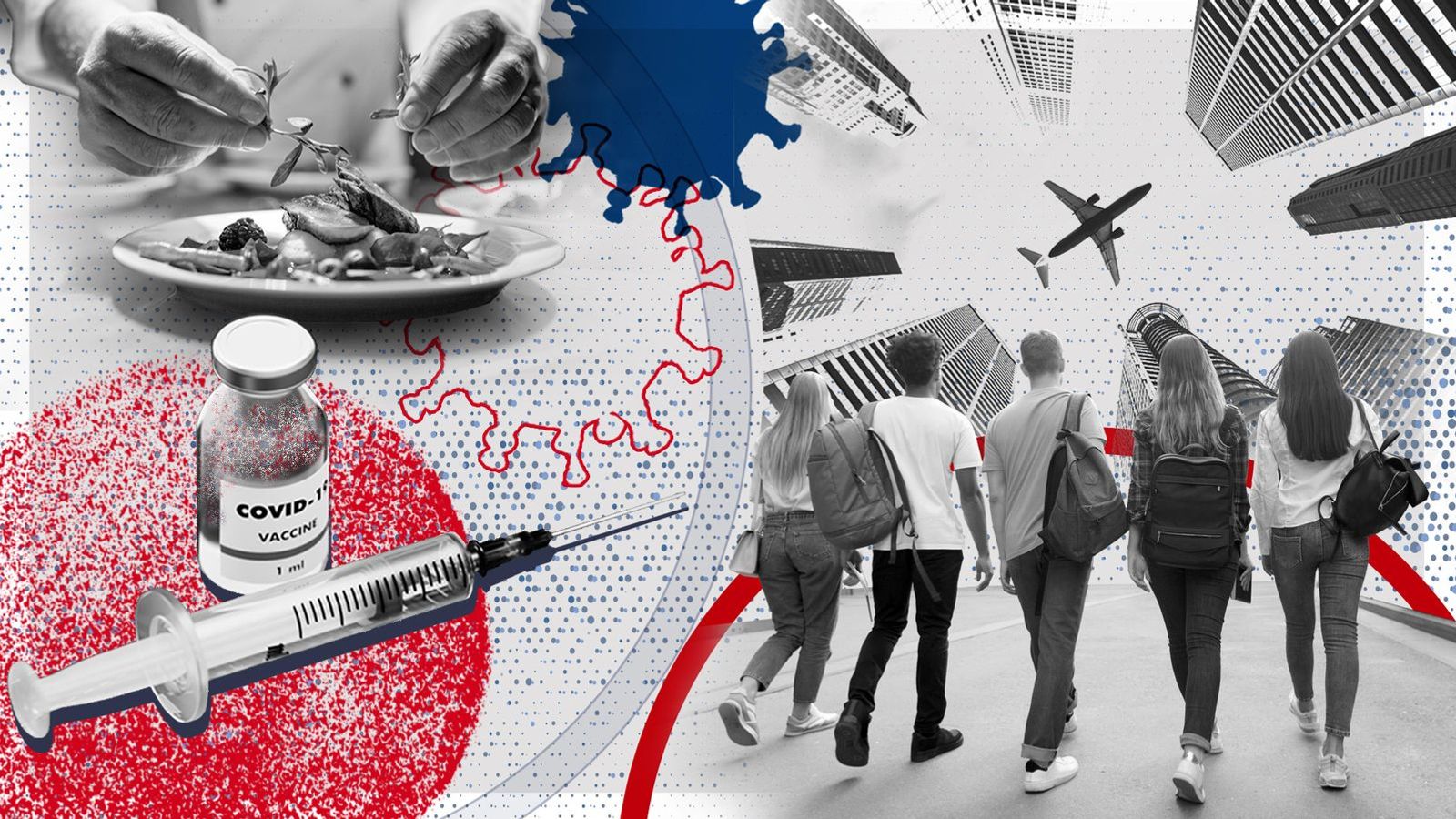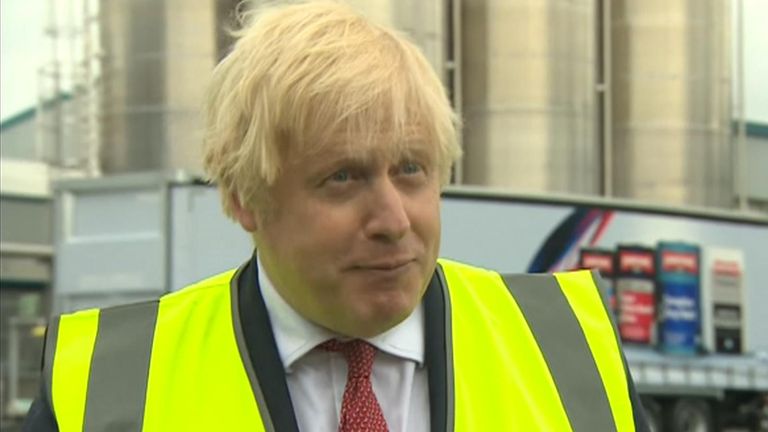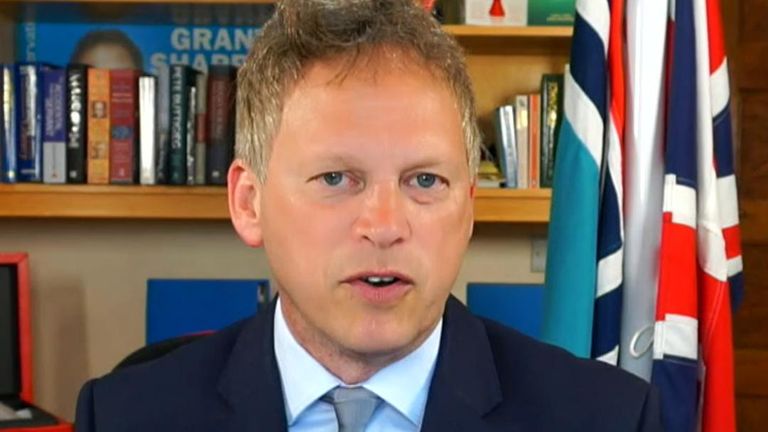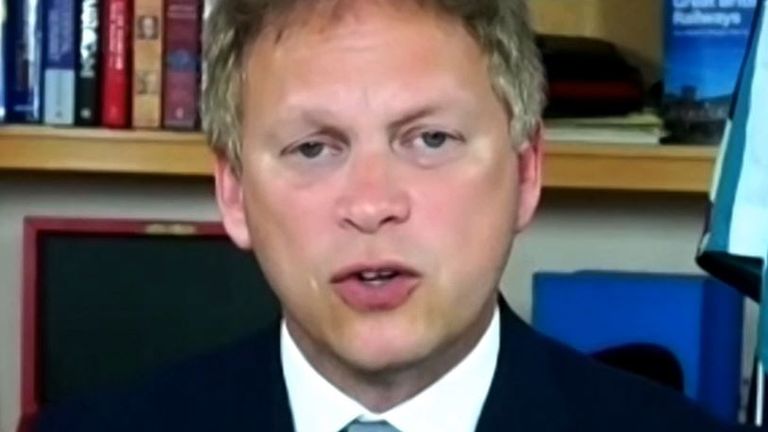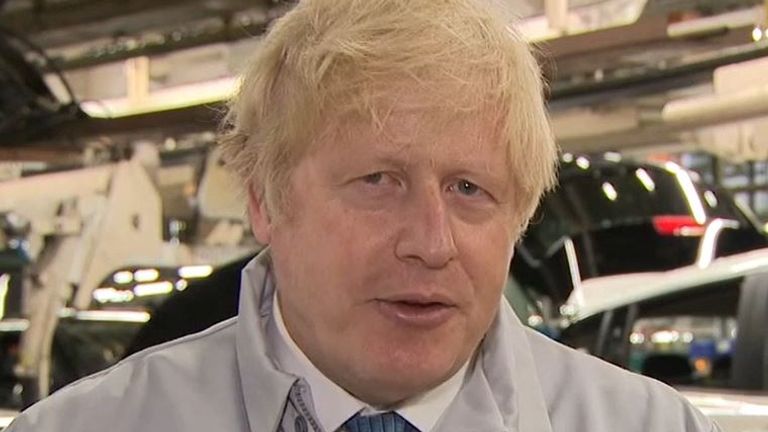It has been billed in some quarters as “Freedom Day”, when life will return to a form of normality after more than a year of coronavirus restrictions.
Under step four of the government’s roadmap for easing COVID-19 restrictions in England, currently scheduled for 19 July having been pushed back by four weeks, measures in a range of areas will be lifted.
Sky News takes a look at what specifically will change when this step goes ahead.
:: What does the roadmap say?
When Boris Johnson set out his plan for easing coronavirus measures back in February, he told MPs that step four would see “all legal limits on social contact” being removed.
This means there will be no limits on the numbers of people you can meet up with, both inside and outside your home, although some guidance around this may be kept in place.
In addition, the remaining businesses that are still closed, including nightclubs, are set to reopen.
Restrictions on large events, such as sport, theatre, live music and business events, are set to be eased, along with all limits on weddings and other life events.
:: Will restrictions definitely be lifted on 19 July?
A final decision has not been made, but at the moment it does seem more likely than not that this will happen.
The rhetoric from the prime minister and his ministers, along with media reports, strongly suggests that this is the direction of travel.
On the latter, it is always worth remembering that these stories do not appear out of thin air, reporters are briefed and told things by sources for a reason.
Rightly or wrongly, many decisions the government ends up taking and policies ministers wind up adopting are trailed in the media first.
However, it is worth remembering that the PM and various ministers initially said things were looking good for 21 June until the decision was taken to push step four back.
:: What about face masks and social distancing?
The future of other elements of pandemic life, such as face masks and social distancing, has been less clear.
Given the roadmap spoke specifically about “legal limits on social contact”, questions have been raised about whether some measures may remain beyond step four.
The PM himself has raised this prospect, saying some “extra precautions” may need to remain in place beyond step four.
The government has been carrying out a review into social distancing and “other long-term measures that have been put in place to cut transmission”.
“This will inform decisions on the timing and circumstances under which the rules on one-metre plus, the wearing of face coverings and other measures may be lifted,” the roadmap says.
“This will also inform guidance on working from home – which should continue wherever possible until this review is complete.”
The findings of this review have yet to be shared, although we can expect the results to be set out before step four goes ahead.
Retaining some measures would provoke opposition from lockdown-sceptic Conservative MPs, who argue that doing so would dilute the full-throated “Freedom Day” they have been demanding.
But figures in the medical profession have been calling for some measures to remain in place because of rising case numbers and the spread of the Delta variant, first identified in India.
This weekend, as we approach the point where the PM will have to make a decision on whether or not to proceed with step four, we have been given more detail on what life post-19 July could very well look like.
According to reports in the Sunday newspapers, face masks and social distancing will no longer be required once step four comes into effect.
According to the Sunday Times, having to scan a QR code before entering a bar, restaurant or similar venue will also be a thing of the past after 19 July, meaning a smaller risk of people being told to isolate by Test and Trace.
And the paper also reported that mass events, including festivals, will be allowed.
In addition, Downing Street said on Saturday it is considering scrapping quarantine requirements for those who have received two vaccine doses if they come into contact with someone who is infected.
The messaging from ministers in recent days indicates there will be a shift in focus from legal restrictions to people exercising their own judgement and making their own decisions.
Housing Secretary Robert Jenrick told Sky News on Sunday: “We are going to now move into a period where there won’t be legal restrictions – the state won’t be telling you what to do – but you will want to exercise a degree of personal responsibility and judgement.
“So different people will come to different conclusions on things like masks, for example.”
While there will almost certainly not be a legal requirement to wear face masks, guidance may be kept in place advising people to do it in certain circumstances.
Businesses and organisations could very well take a different view and still require the wearing of masks or adherence to social distancing in their premises.
Mr Jenrick said ministers are now “able to think about how we can return to normality as much as possible” thanks to the vaccine rollout.
He said the data at the moment “looks very positive” ahead of 19 July, adding: “It does seem as if we can now move forward and move to a much more permissive regime where we move away from many of those restrictions that have been so difficult and learn to live with the virus.”
:: Will big events go back to how they were pre-pandemic?
Not necessarily.
Another government review – the Events Research Programme – has been looking into how large events can be put on in COVID times, examining the risk of transmission and how this can be mitigated.
The results of the first phase were published at the end of last month, with ministers saying it has “helped to understand how the risk of transmission can be reduced at large events when mitigating measures are introduced”.
“The study gathered significant data on behaviour, movement, ventilation and testing and has shown that with mitigating factors, such as social distancing at pinch points, face coverings and staggered entry and exit times, events can be conducted more safely at increased capacities while maintaining a low risk of transmission,” the Department for Culture, Media and Sport said.
“While additional ERP events continue to gather further evidence, no decisions have been taken on the full reopening of mass events,” the department added.
“The government will set out its position on this ahead of Step 4 in the roadmap.”
So it is possible there may be some things that are different about large-scale events once restrictions are lifted in step four.
:: Are COVID passports still happening?
Officially, the government says that COVID passports (requiring proof of a recent negative test or vaccination) “could have an important role to play both domestically and internationally, as a temporary measure”.
It notes that even without government action on the matter, proving your COVID status is “likely to become a feature of our lives until the threat from the pandemic recedes”.
While the exact requirements may vary, many countries now require arrivals to provide proof of their vaccine status or evidence of a recent negative test to gain entry.
The EU has just brought in a bloc-wide “Digital COVID Certificate” which provides the user with proof they have either been vaccinated against COVID, have received a negative test result or have recovered from the virus.
Talks are ongoing on how to integrate the EU’s system with the NHS one.
But while it seems that COVID passports will be a feature of international travel, their use domestically is uncertain.
We already know that they will not be required on public transport, essential shops or to access essential services.
Ministers have said they could play a role in places like theatres, nightclubs, and at mass events like festivals and sports events, given the fact that these will see large numbers of people brought together in close proximity.
Hospitality venues like pubs and restaurants have also been suggested as potential settings where COVID passports could be utilised, but this has sparked a backlash in the past.
It is a controversial idea, given it raises civil liberties issues. But there are a range of concerns about them, something the government acknowledges.
“Vaccination is not suitable for all citizens and there are other means of demonstrating a reduced risk of transmission,” the Cabinet Office said.
“The government believes that COVID-status certification could be acquired through vaccinations, testing or natural immunity.
“It is also important that there are appropriate exemptions for people for whom vaccination is not advised and repeat testing is difficult.”
Amid this backdrop, there have been reports circulating in recent weeks that the idea will be scrapped.
“It’s not a case of ‘it’s finely balanced’. It’s not going to happen,” a government source told the Daily Telegraph this week.
“Everyone says it’s dead.”
:: Will restrictions around international travel be relaxed?
Restrictions on travel were eased on 17 May, with a traffic light system introduced for destinations around the world.
Britons can travel to nations on the green list and not have to quarantine for 10 days upon their return, although they still have to take a pre-departure test and another two days after arriving.
Most countries, including European destinations like France, Italy, Germany, Portugal and Greece, are on the amber list.
Britons returning from these countries have to isolate for 10 days, as well as taking two tests on days two and eight after returning.
The government has been discouraging people from travelling to amber list destinations on holiday, insisting trips should only be undertaken for limited reasons.
Only British and Irish nationals, or those who have residence rights in the UK, are allowed to come to the UK from red list countries.
Those that do have to pay £1,700 to quarantine in a designated hotel and take a number of tests before they can be released.
But a relaxation of restrictions for those who have been fully-vaccinated is on the horizon.
Those who have received two doses will be able to travel to amber list countries and not have to quarantine upon their return later this summer, the government has confirmed.
The Department for Transport has said that when the new exemption comes into force, the guidance that people should only travel to amber list countries for “essential” reasons will also be dropped.
But other countries could very well choose to introduce restrictions on UK arrivals, so a hassle-free summer holiday or family reunion is not guaranteed.
The PM has been at pains to dampen down expectations of a widespread return to normality for international travel in his public comments recently.
“I want travel to be possible, but I’ve got to stress that this year will not be like every other year because of the difficulties with COVID,” he has said.
“People shouldn’t expect that it will be completely hassle free.”
